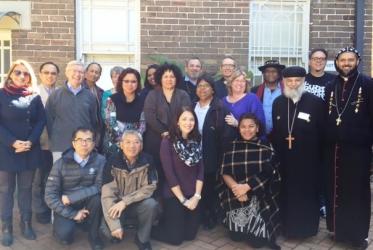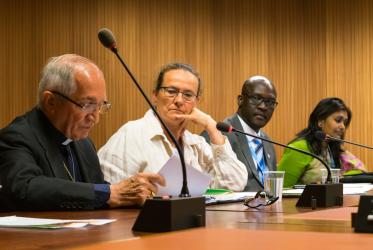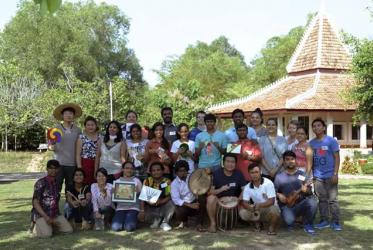Displaying 61 - 80 of 104
03 December 2015
WCC praises Church of South India as a truly united church
26 November 2015
WCC general secretary sends Diwali greetings to Hindu partners
12 November 2015
WCC encourages churches to pray on Hiroshima Day
06 August 2015
Religious leaders urge a ban on fully autonomous weapons
02 April 2015
Christians around the world pray for unity
22 January 2015
Momentum builds for ban on nuclear weapons
16 December 2014
Pilgrimage of justice and peace gives vision for WCC programmes
22 November 2014







